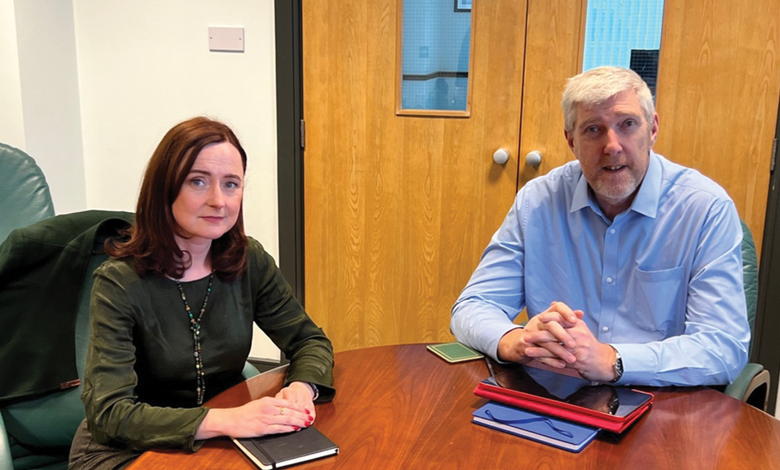Transport infrastructure can enhance social connections and mental health

Northern Ireland’s Mental Health Champion, Siobhán O’Neill, discusses the underpinning importance of good transport and infrastructure in the mental wellbeing of society.
As Mental Health Champion for Northern Ireland, my role is to promote the mental health of the population through the work of all the government departments. Some of the work may seem obvious, such as promoting wellbeing in schools, and leading improvements in mental health services.
However, the links with other departments can seem less clear, for example, the work of the Department for Infrastructure in promoting mental health and wellbeing is rarely highlighted, and often taken for granted.
Data shows that one in five people in Northern Ireland have a probable mental illness, and it seems that the mental health difficulties experienced by people here are more complex, as a result of the trauma and division that has characterised our society. The conflict’s legacy continues to affect people, particularly in deprived areas; whilst poverty and social inequalities create chronic stress which can result in mental illness.
We are social animals, and neuroscientific data from studies of relationships and mental health illustrate how, when we are in the company of people who understand us, our bodies and brains connect to regulate the effects of negative emotions.
Put simply when we are with our pack, we feel safe, protected, and calm. Almost one in five people in Northern Ireland feel lonely at least some of the time. Loneliness is an absence of emotional attachments with people who share our perspective. It is a chronic stressor that places an enormous strain on our nervous system, activating our biological fight or flight response and increasing the risk of mental illness. It can affect people at any time in their life, but the rates among young people, older people, and those who experience discrimination and marginalisation are particularly stark.
The infrastructure that brings people together and allows people to connect is therefore vital to promote wellbeing, to prevent mental illness and to foster healing. Mental health is also nurtured in families and communities where people feel that they are valued. By functioning in roles within work and in our families, or socially, we flourish and grow.
Good transport and infrastructure are absolutely essential in allowing us to maintain our roles; whether it is getting to work, getting the children to school, or getting to the places where we can connect with our friends and peers. As a working parent in a rural area, I am so very grateful for the maintenance of the roads, for the school bus, and for the systems and structures that allow me to get from home to work safely.
The pandemic has taught us that whilst much of our business can be undertaken efficiently through online meetings, the relationships that generate creativity and innovation are established through face-to-face interaction. When we are together, our bodies and brains can respond to the subconscious cues that for the basis of communication.
The provision of efficient transport and infrastructure is particularly vital for those who are marginalised, who are more likely to suffer poor mental health through exclusion and discrimination. The transport network needs to be safe and accessible for disabled people, minority ethnic groups, those who experience poverty, as well as people of all ages and genders.
These are the groups who benefit the most from connecting with peers, and who often need to travel further to work, or access support and services. The public transport network also provides opportunities for people to connect and share a smile, or a nod, or a word of recognition, which can be the spark that ignites a friendship or romance or provide a vital glimmer of hope at a time of crisis.
At my recent meeting with the Minister for Infrastructure, we discussed the importance of the work of the Department to allow us to navigate our roles and to make our lives less stressful.
There are many opportunities to ‘design in’ safety, wellbeing, and social connection and to support those who suffer the impact of exclusion. This now needs to be a priority across all the departments as we work together to create the sort of functioning, connected, and healthy society that we aspire towards.
Siobhán O’Neill is a professor of mental health sciences at Ulster University. She was appointed the Mental Health Champion in September 2021.





